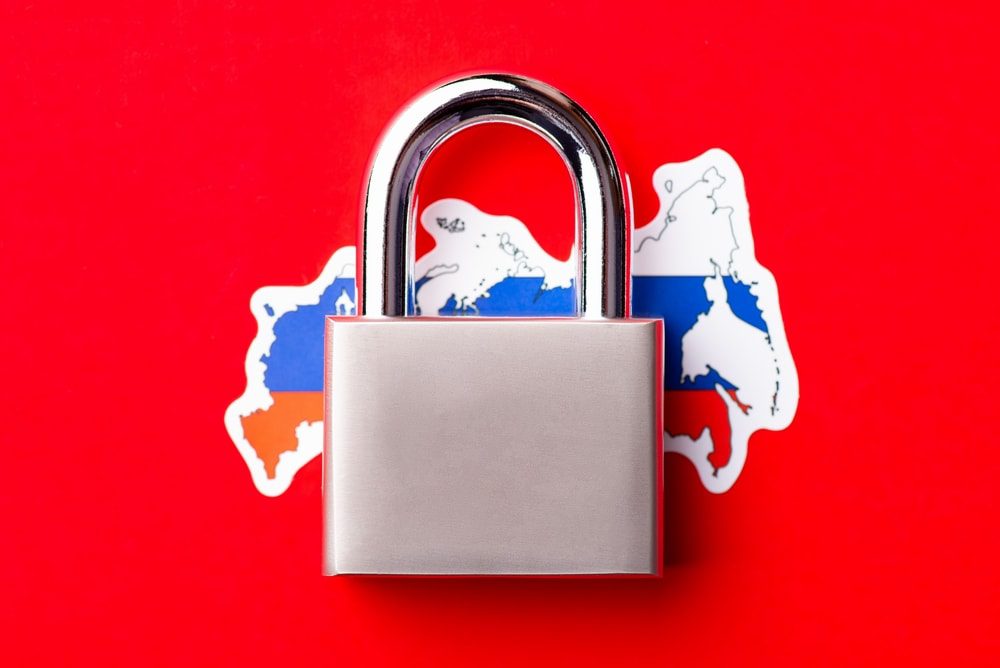
Searing images of dead Ukrainian civilians, laying on wet asphalt roads, or having been unceremoniously dumped in pits, were shown in the UN Security Council on Tuesday. The identity of their killers remains disputed, and a forensic investigation is underway. Yet, feelings of moral outrage are already shaping policy.
On Thursday, April 7th, the EU Parliament, “indignant” over reported atrocities by the Russian armed forces in the small town of Bucha and other places, waved the route of mere sanctions on Russia goodbye and embraced embargo—no more should its exports of oil, gas, and nuclear fuel reach EU lands. With a newly adopted resolution, its MEP’s want to amp up the pressure on the European Commission (which, while fully onboard with sanctions, had not considered a wholesale embargo yet) and Member States to adopt a far tougher stance towards Russian President Vladimir Putin’s regime.
Greeted by loud applause when the resolution (the vote of which garnered a substantial majority of 513-22, with 19 abstentions) passed, President Roberta Metsola pronounced it “an important moment and a significant step.” She called the parliament’s position “clear,” adding that it sends “the strongest possible message of support to the people on the front lines in Ukraine.”
Stronger action called for by @Europarl_EN in strong resolution following war-crimes in #Ukraine:
— Roberta Metsola (@EP_President) April 7, 2022
•immediate full embargo on Russian oil, coal, nuclear fuel & gas
•delivery of weapons to be stepped up
•more & harder sanctions reflecting level of atrocities#StandWithUkraine pic.twitter.com/9DGEumU96s
The parliament also calls for all Russian banks to be excluded from payment operator Swift’s network, to deprive Russia of membership to the G20 and other multilateral organizations, and to increase arms deliveries to Ukraine. Furthermore, it stresses that this should be accompanied by a plan “to ensure the EU’s security of energy supply,” as well as a strategy to “roll back sanctions in case Russia takes steps towards restoring Ukraine’s independence, sovereignty, territorial integrity within its internationally recognised borders and completely removes its troops from the territory of Ukraine.”
In Brussels meanwhile, a new package of sanctions (the fifth since the start of the invasion of Ukraine) has been approved, the main pillar of which is a ban on coal (for Russian fossil fuels, the first of its kind), which would cost the nation €4 billion a year. It would however only go into full effect from mid-August on, a month later than initially planned, after pressure from Germany to delay the measure. Energy analysts and coal importers say Europe could find substitute suppliers, including the U.S. Yet coal is only a sliver (€18 million daily) of the revenue Russia garners from EU exports. And while a ban on gas and oil (for which EU countries daily pay €781 million) would deplete Moscow’s coffers to a far greater extent, the EU remains highly dependent on these commodities. Hesitant over inflicting pain on their own economies and peoples, some Member States, such as Hungary, are therefore striking out on their own.
It is not the only attempt at weakening and isolating Russia on the world stage. That same day, the UN General Assembly suspended Russia from its human rights body over reports of “gross and systematic violations and abuses of human rights.” The U.S.-led push for Russia’s removal from the UN Human Rights Council garnered 93 votes in favor, while 24 countries were opposed and 58 countries abstained. A two-thirds majority of voting members in the 193-member General Assembly—abstentions do not count—was needed to suspend Russia from the 47-member council, which is based in Geneva. Having failed at removing Moscow, it remains suspended, barred from speaking and voting, although its diplomats can still attend debates. While the council cannot make legally binding decisions, they do send important political messages, and can authorize investigations. Membership to it strengthens one’s position as a trading partner as well.
Such a suspension is a rarity. Libya, which was voted out in 2011 because of violence against protesters by government forces under then-leader Muammar Gaddafi, is the most recent example.
Speaking before the vote, Ukraine’s U.N. Ambassador Sergiy Kyslytsya said a yes vote would “save the Human Rights Council and many lives around the world and in Ukraine,” while a no vote was akin to “pulling a trigger, and means a red dot on the screen—red as the blood of the innocent lives lost.”
His Russian counterpart, deputy UN Ambassador Gennady Kuzmin said now was not the time for “theatrical performances,” and that Moscow rejects “the untruthful allegations against us based on staged events and widely circulated fakes.” Finishing his statement, he implored Western countries and allies not to “destroy existing human rights architecture.”
China, moving away from its former neutrality in two previous General Assembly votes concerning the war in Ukraine, this time opposed the resolution. Its ambassador, Zhang Jun, questioned the hastiness of the General Assembly, “which forces countries to choose sides, will aggravate the division among member states, intensify the confrontation between the parties concerned,” concluding that “it is like adding fuel to the fire.”
While criticisms of the Human Rights Council are rife (many member countries, most notably China and Qatar, regularly violate human rights), this latest exclusion of Russia can only widen an already considerable rift—and complicate any future reconciliation from Russia’s part, should any be attempted or indeed even desired.
The fact that some hours after the vote, Russia’s deputy UN Ambassador announced that the country would quit the Human Rights Council altogether, points to the unlikelihood of such a scenario taking place.
